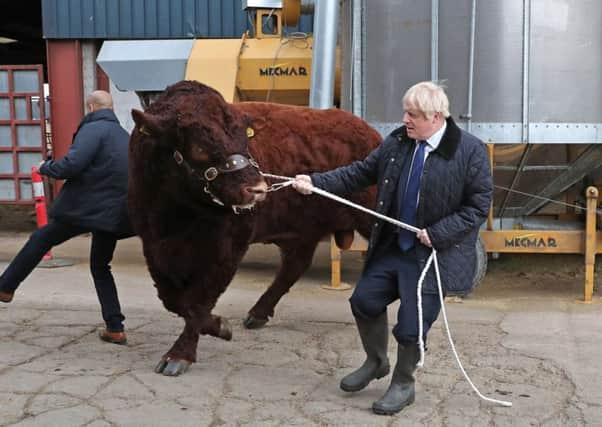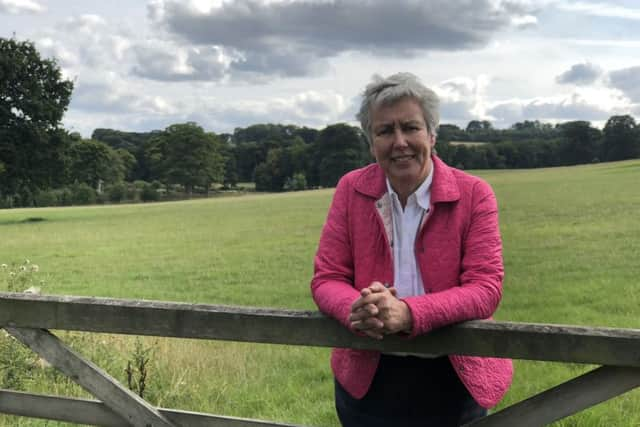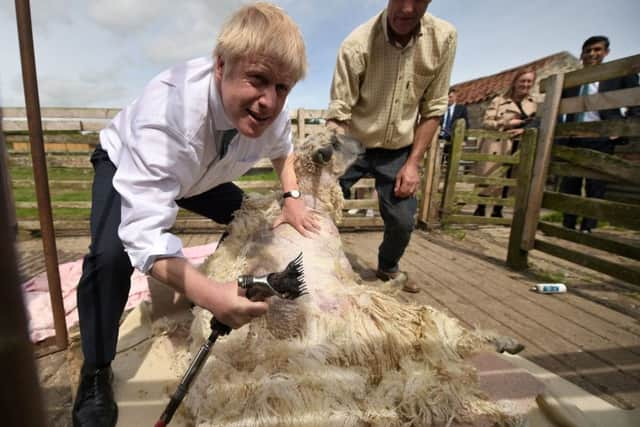How to turn Yorkshire into a Rural Powerhouse for farmers and growers – Dorothy Fairburn


The Rural Powerhouse is not a flash in the pan initiative, and is rooted in the belief that the countryside has an exciting future and we all have a role in shaping it. As it stands, the rural economy is 16 per cent less productive than its urban counterpart, but realising this untapped potential could grow the rural economy by billions of pounds each year.
The CLA will now be ensuring that all those that have been elected hold their promise to unlock the immense potential for economic growth and job creation in the rural sector by implementing constructive policies. In tandem, we will continue to have dialogue across the political spectrum on all matters rural.
Advertisement
Hide AdAdvertisement
Hide Ad

In securing a majority it appears we now have a stable government led by Boris Johnson that can continue for a full term, and many will breathe a sigh of relief at the clarity that brings, even if just for the interim.
Mr Johnson will drive through the Withdrawal Bill to meet his end of January 2020 deadline, but this is not ‘getting Brexit done’. It would be delusional to think so, as the consequences of leaving the EU will be with us for a long time.
Advertisement
Hide AdAdvertisement
Hide Ad

It leaves the UK with less than a year of ‘transition’ to negotiate a Free Trade Agreement with Europe – otherwise, according to the Withdrawal Agreement, the UK will leave without a deal, with yet more uncertainty. This is the last thing that the country needs.
There are some positives, in addition to a newly mandated Prime Minister, which could steer us away from a ‘no deal’ scenario. We should not forget the extent to which European agriculture needs a deal with the UK – the EU runs a £20bn agriculture trade surplus with the UK, and an overall trade surplus of almost £100bn.
A minimum starting block for the new Government would be to ensure there is a policy framework which supports profitable farming, food production and the environment, alongside a tariff regime which would prevent undercutting the UK market with products of lower environmental or animal welfare standards.
Advertisement
Hide AdAdvertisement
Hide Ad‘Brand Britain’ is renowned for its high quality agricultural produce, and there are definite niche markets abroad with ample opportunities for these to be capitalised.
In addition, in all trade negotiations, we must embed the idea of environmental equivalence. If we are to play our part in addressing the climate emergency, shrinking biodiversity and food security, this should not be considered optional.
We will also hold politicians to account for using Brexit as an excuse for not getting anything else done.
The proposed Agriculture Bill will result in a major restructuring of the food and farming sector, including the agri-food supply chain which is crucial to trade. However, this, as well as the Environment Bill needs to be enacted. There is a building frustration due to uncertainty caused by the delay of both these Bills.
Advertisement
Hide AdAdvertisement
Hide AdProfitable and sustainable farming can go hand in hand with delivering public goods such as enhancing the environment and sequestering carbon but only through long-term business planning that must be backed by the certainty of multi-annual investment by government, and which, in turn, should include direct investment in skills and productivity.
In addition to calling for the above, our Rural Powerhouse campaign also asks the new government to support a fully digitally connected countryside (both broadband and mobile); a simplified and more flexible planning system designed for rural communities; as well as a less bureaucratic and efficient tax regime.
The CLA will continue to champion the rural economy in Yorkshire and beyond, providing a powerful lobbying voice in Westminster to ensure that the rural voice is heard on a wide range of issues including taxation, planning, and rural crime to name but a few.
It would be fantastic if politicians from all persuasions – starting with the new Prime Minister – can give their wholehearted commitment to the UK’s rural areas. And in addition to words and undertakings, fulfil these with actions in 2020.
Dorothy Fairburn is director of CLA North.